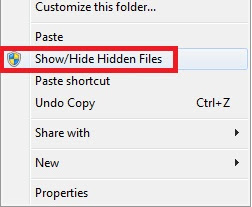Microsoft has launched another blistering attack on Google over Government contracts.
This time, Microsoft is claiming that the company lied to court officials when it claimed its Google Apps for Government had the seal of approval from US security officials.
The furore stems from claims that Google has repeatedly made - including in court during a complaint that a US government department had chosen Microsoft products over Google's - that its governmental productivity suite had been given security approval.
Indeed, Google's site still specifies that “Google Apps for Government is certified and accredited under the Federal Information Security Management Act (FISMA), which sets security standards for software applications in use by the United States federal government.”
But Microsoft says Google is lying about the accreditation, and has produced court documents that also question the veracity of the claim.
To be clear, in the view of the GSA, the agency that certified Google’s Google Apps Premier, Google does not have FISMA certification for Google Apps for Government
“It’s time for Google to stop telling governments something that is not true,” wrote David Howard corporate vice president and deputy general counsel in an official Microsoft blog.
Howard referred to a Department of Justice document that said although Google had been granted FISMA accreditation by the General Service Administration (GSA) for its Google Apps Premier, it did not have certification for the government version of the package.
"To be clear, in the view of the GSA, the agency that certified Google’s Google Apps Premier, Google does not have FISMA certification for Google Apps for Government,” the document reads.
New filing for accreditation
The documents went on the state that Google was at the time finalising its application, which Microsoft claimed meant it could not have been a simple mistake on Google's part.
“Google can’t be under the misimpression that FISMA certification for Google Apps Premier also covers Google Apps for Government,” Howard said. “If that were the case, then why did Google... decide to file a separate FISMA application for Google Apps for Government?”
Howard said he had to “wonder what Google is thinking as it continues to claim that Google Apps for Government has FISMA certification”.
According to Google, the documentation for its Google Apps accreditation should cover all of the Apps family, although it admits it is continuing to seek further documentation.
"We did not mislead the court or our customers," a spokesperson said in a statement sent to PC Pro.
"Google Apps received a FISMA security authorisation from the General Services Administration in July 2010. Google Apps for Government is the same system with enhanced security controls that go beyond FISMA requirements. As planned we're working with GSA to continuously update our documentation with these and other additional enhancements."
The spat marks a new low in the relationship between Google and Microsoft, the latter of which recently lodged a formal complaint with the EU alleging anti-competitive practices against Google.



































